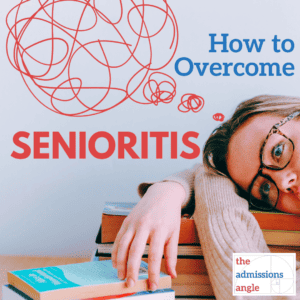
The Common App's New COVID-19 Section
COVID-19 has affected schools, employment, public transportation, the economy and now… the Common Application! New to this year’s Common App is an opportunity for students to discuss the impact that COVID-19 had on them. Should you plan to fill out The Common App’s new COVID-19 section? And if so, what should you write about?

By NOELLE COMPTON
On August 1st, the Common Application for the upcoming season was officially launched. As anticipated, there is a special new section on how COVID-19 has affected the student. The Common App’s new COVID-19 section can be found by clicking the “Common App” tab at the top of the screen. Then, scroll to the “Writing” tab in the left side menu. In the “Additional Information” section, students will find a prompt that reads like this:
Community disruptions such as COVID-19 and natural disasters can have deep and long-lasting impacts. If you need it, this space is yours to describe those impacts. Colleges care about the effects on your health and well-being, safety, family circumstances, future plans, and education, including access to reliable technology and quiet study spaces. For more information, check out our COVID-19 FAQ.
Students are invited to check “yes” or “no”, and if they choose to share, then students may write up to 250 words to address the prompt.

Why did The Common App add this new section?
According to folks at the Common App, “We want to provide colleges with the information they need, with the goal of having students answer COVID-19 questions only once while using the rest of the application as they would have before to share their interests and perspectives beyond COVID-19.”
In other words, we believe that college admissions officers were not interested in reading ten thousand essays about COVID-19 this fall. Therefore, they decided to add this dedicated section for students to report on any factors that may have impacted their education as the virus spread. The wording of this explanation would suggest that students are discouraged from building their personal statements and supplemental essays around the theme of COVID-19 and its disruptions, though we recognize that there are always exceptions.
Is the Common App’s new Covid-19 section truly optional?
Yes, we believe that this section is truly optional and that students should only plan to fill in this section if they have something meaningful to say. We know that when it comes to college applications, optional doesn’t usually mean optional. For supplemental essays or materials, students should plan to go above and beyond by taking every opportunity to share something new about themselves. However, in this case, you really do have a choice.
College Admissions Services
Schedule a Free Consultation
Meet with a mentor one-on-one via video chat to talk about your son/daughter’s admissions plan. Afterwards, receive a no-obligation Customized College Roadmap (CCR) with advice on courses, extracurricular activities, standardized tests, and Admissions Angle strategy.
Should I write the Covid-19 supplemental essay?
The Common App has provided a handy FAQ to guide students in their decision about whether to write this essay. In their words, “There’s… no need to describe how your school responded to these events. Your counselor will have an opportunity to discuss impacts like closures, online instruction, and grading policies. Instead, consider how these events may have impacted you, your family, and your learning environment.”
Included in this FAQ are suggestions for the circumstances that might warrant a student filling in this section. Below, we will address each of their suggestions, one by one, along with explanations.
Illness or loss within your family or support network
If you lost someone close to you due to COVID-19, then this is certainly worth writing about. However, the loss should have impacted you in a way that is personal, rather than in a way that made you consider your mortality. In other words, if you lost your parent, close family member or teacher, admissions officers want to hear about that. If you lost someone distant, then writing about it may come across as attempting to co-opt someone else’s tragedy.
Employment or housing disruptions within your family
If your parent lost their job or if your family’s housing situation became unstable, causing you to move, downsize, or become houseless, then this is worth writing about if it affected you. If your comfort or quality of life remained relatively unchanged throughout the disruption, then it is probably not worth mentioning.
Food insecurity
If at any point in the pandemic you felt as though your access to food was genuinely threatened, weakened, or uncertain, college admissions officers will want to know about this. In this situation, food insecurity likely goes hand in hand with loss, employment disruptions, or some other factor that is also worth discussing. Alternatively, if you relied on school meal programs to reliably access food and, as a result of COVID-19, lost access to these meals, do make the admissions officers aware of this.
Toll on mental and emotional health
In choosing whether or not to write an essay addressing the toll of COVID-19 on your mental or emotional health, we urge applicants to consider the following two points:
One, COVID-19 had a profound impact on hundreds of millions of individual’s mental and emotional health. The lockdown was difficult and painful, as was the isolation, confusion, and lack of resources. Consider whether the toll of COVID-19 on your mental or emotional health is unique in this regard before choosing to write about it. Moreover, consider that your application will appear next to other students’ applications that discuss impacts such as those listed above: food insecurity, houselessness, income loss, etc. Before choosing to discuss your emotional health, consider how your grievances will appear in contrast to essays like those.
Two, students need to be wary of “red flags” on their applications. Admissions officers may consider a propensity for depression as an indication that the student will not be able to handle the stress of the college environment. Therefore, we do urge students to think hard before choosing to include such information in any part of their application.
(Note: We do understand the importance of mental and emotional health. We also understand that many students experience very real struggles not just during COVID-19 but throughout their high school years. However, we are writing these opinions from an admissions perspective and our thoughts are formed based on experience and discussions with admissions officers. Please consider our suggestions to be merely practical.)
New obligations such as part-time work or care for siblings or family members
If you became caretaker to someone in your family or had to take on extra employment as a result of COVID-19, then it is likely that your academics may have been impacted as a result. Alternatively, if you were able to maintain strong academics even in spite of this new workload, this is something to write about proudly, and we would suggest doing so.
Availability of computer or internet access required to continue your studies
With classes moving to an online model and resources such as libraries closing their doors, students’ ability to study may have been hampered. If this describes you, then take this opportunity to give details about this experience. This is doubly important if your grades were affected.
Access to a safe and quiet study space
There’s no way around it: Living in a small house with other family members makes it very difficult to focus on studies. If this describes your situation in a way that meaningfully affected your grades, then you should take advantage of this opportunity to explain your situation.
A new direction for your major or career interests
Be careful with this one. First, you don’t want your application to be repetitious, so if you mention the impact that COVID-19 had on your path of study in the why us or why major essays, there is no need to do so again in this section. Second, if you decide to discuss this, make sure that you have tangible support for your claims. For example, if COVID-19 made you realize that you want to be a doctor, you need to be able to substantiate this realization with actions you’ve taken. Did you start or join a club? Volunteer? Start a mutual aid group? Undertake an individual research assignment? If not, then this claim will not look legitimate to the admissions officer. Only discuss a new direction if you’ve backed it up with action.

Should I avoid discussing Covid-19 on my personal statement?
As I mentioned above, Common App introduced this prompt in an attempt to mitigate the tens of thousands of Covid-centric essays that admissions officers would have to read this year. According to Shawn Abbott, the vice provost for admissions at Temple University, “I would advise to resist against writing about something that has consumed all of us around the world. Know in advance that colleges will fully recognize the impact of what COVID-19 had on your high school experience. Don’t let this one public health crisis (as dramatic as it was!) define you.”
In the end, it’s important to consider the purpose of each essay and the role that it fulfills in the admissions officer. The personal statement serves to ask the question, “who are you?” The Why essays serve to ask, “how do you picture your future education?” This new Covid-19 section serves to ask, “what context should we understand when we look at your academic record?” If there is context that you believe adds depth or explanation to your essay, then take advantage of this opportunity to explain yourself.









